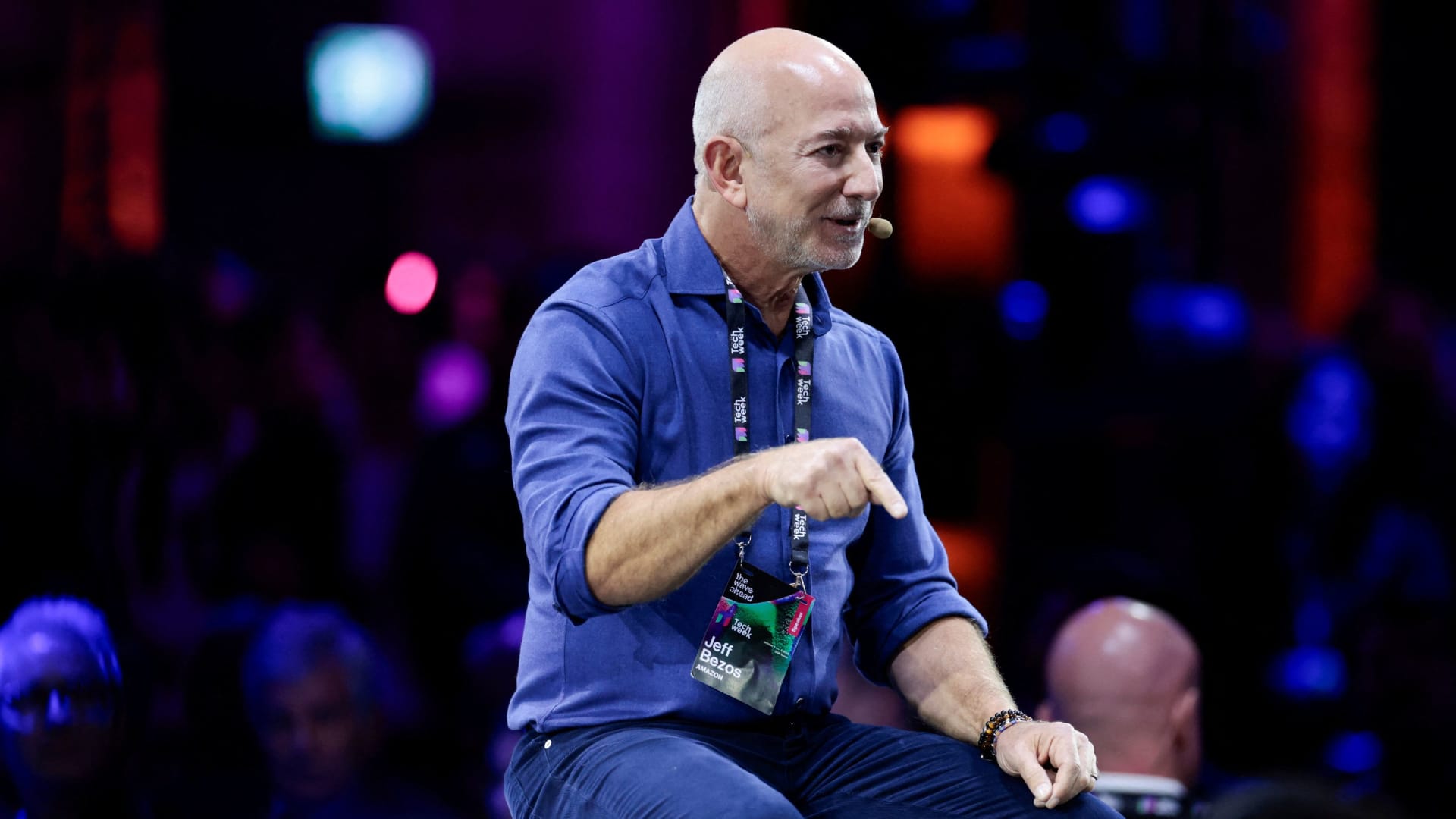People should be more excited and less dispirited about artificial intelligence, according to billionaire Amazon founder Jeff Bezos.
“I don’t see how anybody can be discouraged who is alive,” said Bezos, 61, during a panel at Italian Tech Week 2025 on October 3. “[AI will make every business’] quality go up and their productivity go up … Every manufacturing company, every hotel, every consumer products company … That’s hard to fathom, but it’s real.”
Bezos said he didn’t have a timeline prediction, because different industries will likely embrace AI at different rates. Currently, AI is in an “industrial bubble,” with inflated stock prices and investors who struggle to distinguish between “the good ideas and the bad ideas,” he said. Eventually, the “winners” who successfully use the technology to advance research and development — in any industry — will provide “gigantic” benefits to society, he added.
“There’s never been a better time to be excited about the future,” said Bezos.
DON’T MISS: How to use AI to be more productive and successful at work
Many people don’t exactly agree with Bezos’ sentiment, according to Pew Research Center data published Wednesday. In a global survey, a median of 34% of adults told Pew they’re more concerned than excited about “the rise of AI in daily life.” Forty-two percent said they’re equally concerned and excited, and 16% said they’re more excited than concerned.
Worries over AI are stronger in the U.S., where 50% of respondents told Pew they were more concerned than excited, and 38% said they were equally concerned and excited.
The Pew report didn’t discuss people’s reasons for worry or enthusiasm. Critics of the technology frequently reference factually inaccurate statements and data generated by AI chatbots and other large language models, known commonly as “hallucinations.” Other criticisms center around AI media generators — which can generate fake videos and photos that look real — and companies using the technology to freeze headcounts or hire fewer people.
At Amazon, where Bezos remains executive chairman, AI will shrink the e-commerce giant’s corporate workforce over “the next few years,” CEO Andy Jassy wrote in a memo to employees in June.
AI also has environmental impacts. Data centers require thousands of megawatts of energy to operate effectively, and the electricity needed to train and deploy generative AI models could power about 120 average homes in the U.S. for a year, Massachusetts Institute of Technology researchers estimated in January.
Bezos, who founded and owns space technology company Blue Origin, suggested a potential solution for AI’s environmental concerns: Move the data centers into outer space.
“One of the things that’s going to happen — it’s hard to know exactly when, it’s 10-plus years but I bet it’s no more than 20 years — we’re going to start building these giant gigawatt data centers in space,” said Bezos. “These giant training clusters, those will be better built in space because we have solar power there.”
‘We’ll be able to beat the cost of terrestrial data centers in space in the next couple of decades,” he added.
Want to earn more and grow your money? Save 30% with this earnings-boosting bundle of our top courses.
Plus, sign up for CNBC Make It’s newsletter to get tips and tricks for success at work, with money and in life, and request to join our exclusive community on LinkedIn to connect with experts and peers.


